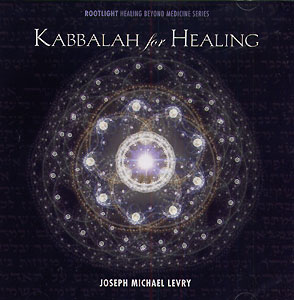Kabbalah and the Seventh Heaven
 Image courtesy wikipedia
Image courtesy wikipediaI’ve had the privilege recently of attending a course on the ancient texts of the Kabbalah, presented by Rabbi Dr. Orna Triguboff. These mystical teachings have long been a fascination of mine, particularly after I discovered, while researching my novel ‘Capriccio’, about the poet Ted Hughes, that he drew inspiration and poetic imagery from the texts of Kabbalah.
Our talks with Rabbi Orna range from discussions about angels, to the study of sleep and dreams, which to me was fascinating. We learned that the Kabbalists see sleep as one sixtieth part of death, in which the soul leaves the body to seek salvation, and returns purified on waking. Thus sleep is like a mini-death, in which we shed the dross of the day to be restored through our dreams. What struck me most forcefully was the sheer beauty and lyricism of the language, which even in its English translation has a musical and poetic quality. 
In Rabbi Orna’s own words: The Kabbalah can be understood as the mystical side of Judaism, which began thousands of years ago. Some of the texts, parts of the Dead Sea Scrolls, were lost and only rediscovered in the twentieth century. Jewish mysticism only really became known as Kabbalah in the Eleventh Century. People from other traditions and religions have been inspired by Kabbalah, and understand it in different ways.
Each week we accolytes sit around a table sipping coffee laced with chocolate, nourishing body and brain with her jewels of wisdom. To take in the meaning of texts over 2000 years old in these little sips is a challenge, but one I welcome with eager anticipation.
I am proud that my own grandfather, who came from Sfad, the centre of Kabbalistic study in israel for many centuries, was a kabbalistic scholar, and left a legacy of writings in Hebrew, Yiddish and English.

Tapestry of Divine Letters. Artist David Friedman, Selected artworks copyright © David Friedman.
The main text of the Kabbalah is called the Zo’har, which records the mystic’s ascent through the seven sacred halls to reach ‘the Holiest of Holies’ – the seventh and highest hall. This heirarchy of levels or spheres range from the earthly to thespiritual. The phrase ‘In Seventh Heaven’ comes directly from these teachings.
There are overtones of Hinduism and other Eastern Religions throughout these texts. There are also links to the chakras or energy centres in the Sanskrit teachings of yoga.
It is no wonder that the poet Ted Hughes found the study of Kabbalah so compelling, and incorporated so much of its mythology into his poetry, particularly the ‘Capriccio’ sequence. In these poems he addresses his lover Assia, whose background was Russian-Jewish, as the divine feminine ‘Shekinah’ but also as the dark force, Lilith.
we have been given by Rabbi Orna have influenced my own sleep patterns, mostly for the better. Before sleep I surrender my spirit to the Infinite, and on waking say a short prayer of gratitude (Modah Ani) for the return of my soul. I sleep deeply and peacefully, knowing my many flaws will be forgiven and healed, and wake with greater respect for the messages of my dreams.

The Kabbalistic Tree of Life, by Artist Richard Quinn
Websites:
Facebook: https://www.facebook.com.neshamalife/
orna@neshamalife.org
https://www.kabbalah.com/what-kabbalahhttp://www.tzfat-kabbalah.org/p=1003
Categories: CAPRICCIO, Kabbalah, TED HUGHES


I like this post on the Kabbalah, Dina. Thanks for the information.
LikeLike
Thanks, Anne. It’s been an inspiring spiritual journey for me. Interesting that Kabbalah teachings have healing powers, similar to Buddhism, and Jungian therapies. I hope to share more of my journey here.
LikeLike
Thank you dear Beatriz. If you’re interested in attending talks on Kabbalah,, contact Rabbi Triguboff at orna@neshamalife.org
My Randwick Writers’ Group currently has four members, so our vacancy is filled. Let me know if you may be interested in the future.
How’s your own writing going?
LikeLike
Thank you dear Beatriz. Yes, the study of Kabbalah is fascinating. Contact Rabbi Orna Triguboff at orna@neshamalife.org
if you’re interested in attending.
My Randwick Writing Group currently has four members, and latest vacancy is filled. Let me know if you may be interested in the future,
LikeLike
Dear Dina
I am also fascinated by cabbalah, particularly since I find out that my family were jews forced to convert. Can anyone attend these classes? Also, was it you who asked writers to become members of a group?
Nice to see that you are full on in your career as a writer.
A big hug
Beatriz copello
LikeLike